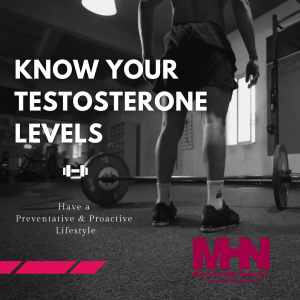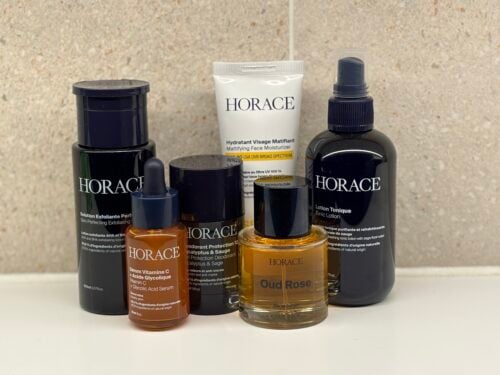Horace Skincare Review: Why Horace Is Dominating The Modern Man’s Bathroom Cabinet
Feb 21, 2026Exploring the Research – Talking About Men’s Health
- Jul 17, 2023
- 0 Comments
499

Testosterone is a crucial hormone for the male body. Testosterone gives men energy, sex drive, muscle mass, motivation, and overall health. As men age, their testosterone naturally decreases.
This is difficult for a lot of men because symptoms of low testosterone include:
- Low sex drive
- Problems having an erection
- Low sperm count
- Sleep problems such as insomnia
- Decrease in muscle size and strength
- Bone loss
- Increase in body fat
- Depression
A few relevant studies also suggest that low testosterone can increase dementia risk. This article will explain the correlation in a simple yet thorough manner.
Does Low Testosterone Increase Dementia Risk?
Multiple studies found a correlation between low testosterone, dementia, and Alzheimer’s disease. However, if you paid attention in your high school history class, you would know that correlation does not equal causation. So yes, there have been some links between low testosterone and dementia, but many other factors exist.
Scientists haven’t concluded that low testosterone increases dementia risk because it’s hard to prove a direct cause-and-effect relationship. Men get low testosterone by not exercising enough, eating unhealthy foods, and living an unhealthy lifestyle.
Living an unhealthy lifestyle also makes you far more at risk of dementia. For example, lacking exercise increases your chances of getting dementia.
It is likely that people with low testosterone are more at risk of getting dementia because people with low testosterone are unhealthy people, and unhealthy become get more dementia. Not because low testosterone directly causes dementia.
However, scientists still don’t know the answer. There have been many studies on this topic, all with different conclusions. So really, we don’t know the answer for sure.
The studies are inconclusive because multiple factors influence both conditions. Dementia and testosterone are influenced by genetics, lifestyle, overall health, and hormonal changes.
A few studies have shown how testosterone affects the brain’s function. Once again, the results were a mixed bag. However, some studies found that low testosterone increases the risk of cognitive decline.
Whether there is a direct or indirect relationship between testosterone and dementia, increasing your testosterone is worthwhile. Low testosterone symptoms are very difficult to deal with, regardless of dementia.
Understanding Dementia and Its Symptoms:
Dementia is a neurological condition characterized by a decline in cognitive abilities. Here are some symptoms of dementia:
- Memory loss
- Difficulty with language and communication
- Impaired judgment
- Changes in mood and behavior
If you or a loved one experience these symptoms, it is crucial to consult a healthcare professional for a proper diagnosis.
Other Factors Influencing Dementia Risk:
Multiple factors increase dementia risk. Some include:
- Smoking
- Lack of regular exercise
- Lower levels of education
- Alzheimer’s disease. *This is the most common cause of dementia.
- Severe head injury
To avoid dementia and also get high testosterone, live a healthy lifestyle. This includes exercising regularly, eating healthy, and staying mentally and socially active.
Other Negatives of Having Low Testosterone:
Besides potentially increasing dementia risk, low testosterone has many other negatives. Here are some symptoms of low testosterone:
- decreased libido
- reduced energy levels
- increased body fat
- decreased muscle mass
- mood changes
If you are experiencing these symptoms, it is essential to consult a healthcare professional for a proper evaluation.
How to Increase Testosterone Levels:
Worry not, there are many ways that you can increase your testosterone levels.
-
Testosterone Replacement Therapy (TRT):
TRT involves medically supervised testosterone administration to restore levels to a healthy range. This treatment option suits men with clinically diagnosed low testosterone and associated symptoms.
A main benefit of hormone replacement is it will transform your testosterone fast. However, once you start taking TRT, your body becomes reliant on it. So when you stop TRT, low testosterone symptoms will return. Visit a doctor before you start TRT.
2. Supplements:
Several supplements claim to boost testosterone levels, but their effectiveness and safety may vary. Testosterone-boosting supplements like Nugenix gathers all the nutrients you need for high testosterone and feeds it to you in a tablet. This helps your body naturally produce testosterone in your sleep.
3. Natural Ways to increase testosterone
There are also many ways that you can increase your testosterone naturally. Some include:
If you do all of these, your testosterone will skyrocket!
Conclusion:
In today’s age, testosterone is at an all-time low. Older men, specifically, are at higher risk of dementia and symptoms of low testosterone.
There have been multiple studies that have found a correlation between dementia risk and low testosterone. However, other studies found no correlation.
It is unclear to scientists whether there is a direct or indirect correlation between dementia risk and low testosterone. Regardless of what it is, it is worth it to try to increase testosterone. If you want to learn how to balance your hormones and testosterone with your diet, you can read this article here.
Publisher: Source link







